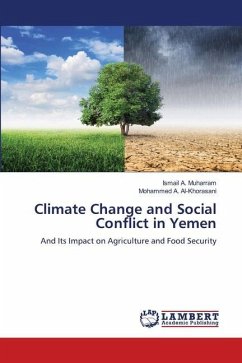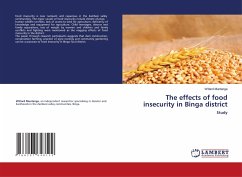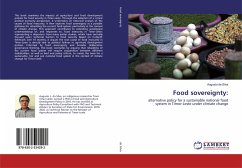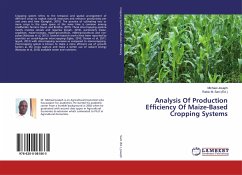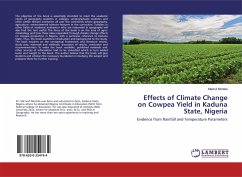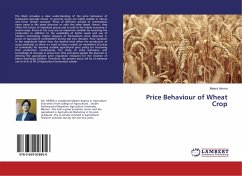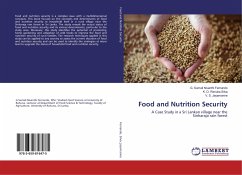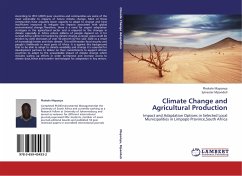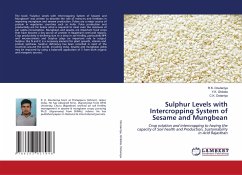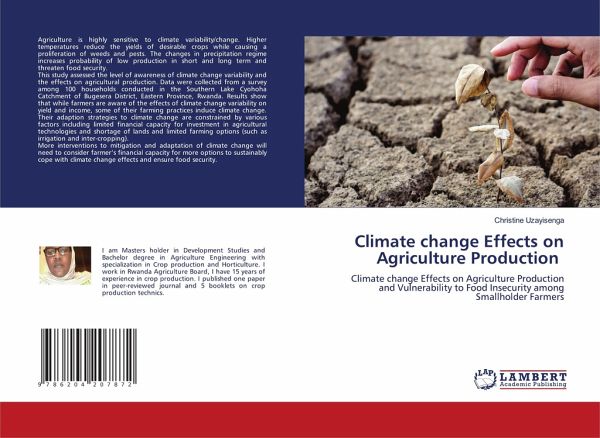
Climate change Effects on Agriculture Production
Climate change Effects on Agriculture Production and Vulnerability to Food Insecurity among Smallholder Farmers
Versandkostenfrei!
Versandfertig in 6-10 Tagen
27,99 €
inkl. MwSt.

PAYBACK Punkte
14 °P sammeln!
Agriculture is highly sensitive to climate variability/change. Higher temperatures reduce the yields of desirable crops while causing a proliferation of weeds and pests. The changes in precipitation regime increases probability of low production in short and long term and threaten food security. This study assessed the level of awareness of climate change variability and the effects on agricultural production. Data were collected from a survey among 100 households conducted in the Southern Lake Cyohoha Catchment of Bugesera District, Eastern Province, Rwanda. Results show that while farmers ar...
Agriculture is highly sensitive to climate variability/change. Higher temperatures reduce the yields of desirable crops while causing a proliferation of weeds and pests. The changes in precipitation regime increases probability of low production in short and long term and threaten food security. This study assessed the level of awareness of climate change variability and the effects on agricultural production. Data were collected from a survey among 100 households conducted in the Southern Lake Cyohoha Catchment of Bugesera District, Eastern Province, Rwanda. Results show that while farmers are aware of the effects of climate change variability on yield and income, some of their farming practices induce climate change. Their adaption strategies to climate change are constrained by various factors including limited financial capacity for investment in agricultural technologies and shortage of lands and limited farming options (such as irrigation and inter-cropping). More interventions to mitigation and adaptation of climate change will need to consider farmer's financial capacity for more options to sustainably cope with climate change effects and ensure food security.



